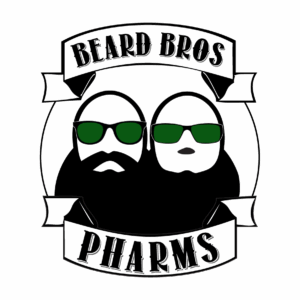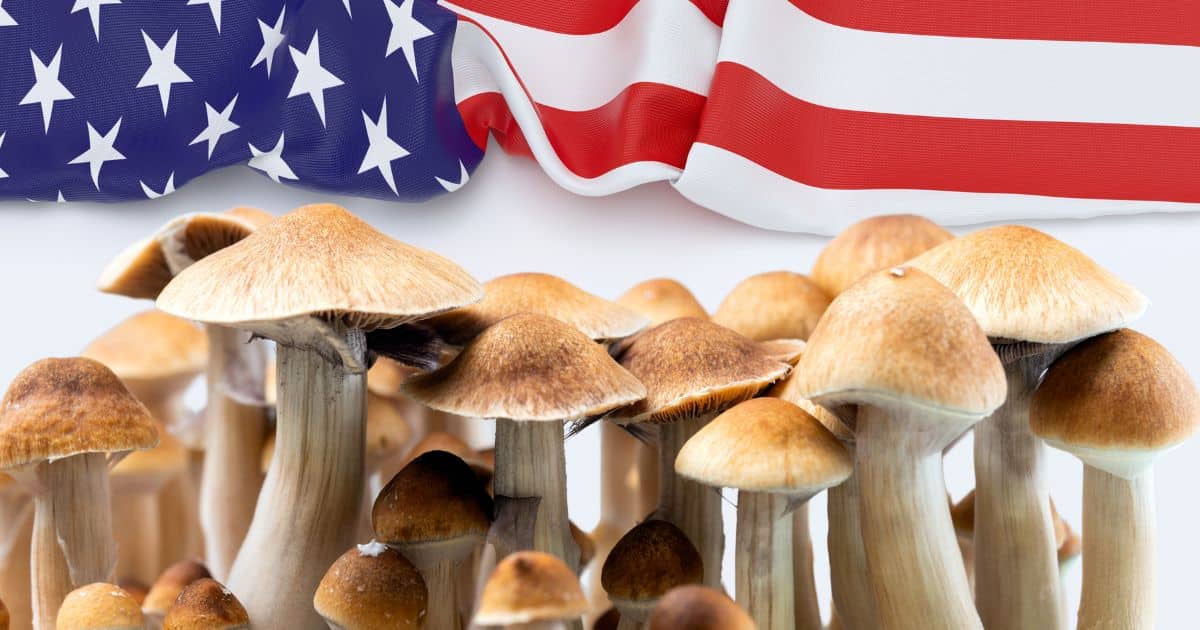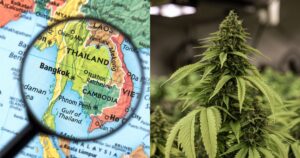The landscape of mental health and well-being treatments is shifting dramatically, and a recent study has provided a comprehensive look at the potential game-changer within American society: psilocybin, the active ingredient in “magic mushrooms.”
With a notable majority of nearly nine in ten Americans expressing a “morally positive” perspective on supervised psilocybin use for therapy and well-being, it’s clear that a seismic shift in the public’s acceptance is underway.

The recent study, published in the American Journal of Bioethics Neuroscience, surveyed 795 participants across the United States. Regardless of demographic representation, political affiliation, or personal background, participants overwhelmingly endorsed the use of psilocybin, indicating a resounding moral acceptance for its application in treating psychiatric conditions or enhancing overall well-being.
The bipartisan support was striking, with respondents across the political spectrum expressing largely favorable views: 91% of liberals and 86% of conservatives approved of psilocybin use for treatment, and 89% of liberals and 78% of conservatives approved of its use for well-being enhancement. Younger adults were even more supportive, but notable majorities in all groups endorsed the compound’s controlled use.
The data tell a compelling story that the US public is not only ready but eager to incorporate psilocybin into the therapeutic arsenal, provided it is administered in a legitimate, secure setting. The authors affirm that these findings lend significant weight to the potential for widespread public support of legislation permitting controlled, therapeutic psilocybin usage.
However, it’s crucial to note the study’s specific focus on supervised use within a legal and ethical framework and not under the supervision of “underground” practitioners, or other illegal uses”. This distinction is vital when considering the feasibility of legislative changes and the ongoing development of regulatory models that ensure patient safety and therapeutic efficacy.
The implications of public support for controlled psilocybin usage are complex. The study’s results stress the need for health and drug policy to be adaptable, reflecting scientific advancements and societal values.
How policymakers and regulatory bodies respond to the changing landscape remains a key question. Discussions on mental health treatment and psychedelics call for careful policy-making that prioritizes scientific understanding.
The Path Forward with Psilocybin
Psilocybin’s therapeutic potential is well-established, with numerous studies highlighting its efficacy and relative safety. From alleviating treatment-resistant depression to catalyzing profound spiritual experiences, the compound’s versatility has positioned it at the forefront of a growing movement within modern psychiatry.
The study’s results underscore the need for a multifaceted approach that navigates the complexities of psilocybin’s expanding role within medicine and society. Scientists and medical professionals must continue rigorous research to outline the psilocybin’s therapeutic benefits and potential benefits fully. Simultaneously, policy-makers must draft legislation that is responsive to scientific advancements, upholds ethical standards, and reflects the public’s evolving attitudes.
However, the momentum of what has been called the “psychedelic Renaissance” necessitates a balanced perspective that both embraces the potential of psilocybin and acknowledges its limitations per the study. The study’s authors emphasize caution against the hype, cautioning that psilocybin is not a panacea for mental health issues.
While the promising findings suggest a significant role for psilocybin in future therapeutic practices, they underscore the importance of continued meticulous research. There is a danger in prematurely positioning psilocybin as a “silver bullet” for mental illness without a comprehensive understanding of its effects, potential side effects, and the extent of its applicability across diverse psychiatric conditions.
This cautious stance aims to temper expectations and ensure that the excitement about psilocybin’s potential does not outpace the evidence supporting its use. In this light, the authors advocate for a measured approach that continues to place scientific inquiry at the forefront of psilocybin’s integration into mental health treatments.

Overall, the recent study vividly illustrates a significant shift in American attitudes towards psilocybin, showcasing a broad consensus that supports its controlled therapeutic use. This collective endorsement serves as a robust foundation for advocating reform in the realm of mental health treatment and drug policy. The overwhelming acceptance across diverse demographics and political affiliations indicates a societal readiness to normalize psilocybin, breaking past stigmas and misconceptions.
It underscores an opportune moment for policymakers, regulators, and stakeholders to harness this public support as a catalyst for meaningful reform. The path to the normalization of psilocybin is, therefore, not just a testament to its therapeutic potential but also a reflection of a society that is increasingly on board with exploring innovative approaches to mental health care.
This convergence of public opinion and scientific evidence offers a unique drive for advancing towards a future where psilocybin can be safely, ethically, and effectively integrated into the tapestry of available mental health treatments, fostering a more holistic and compassionate approach to mental well-being.
- Facebook and Instagram Loosen Cannabis Restrictions, But Is It Enough From Meta?
- Combating Violent and Dangerous Crime Act Targets “Candy-Flavored” Cannabis Products
- Retail Spotlight – Mayflower in Lowell, MA
- Benzinga Chicago 2025 Recap
- Iowa’s Surprising Veto of Psilocybin Bill HF 383
- North Carolina House Bill 328 and the Growing Trend of Hemp Regulation in the U.S.













